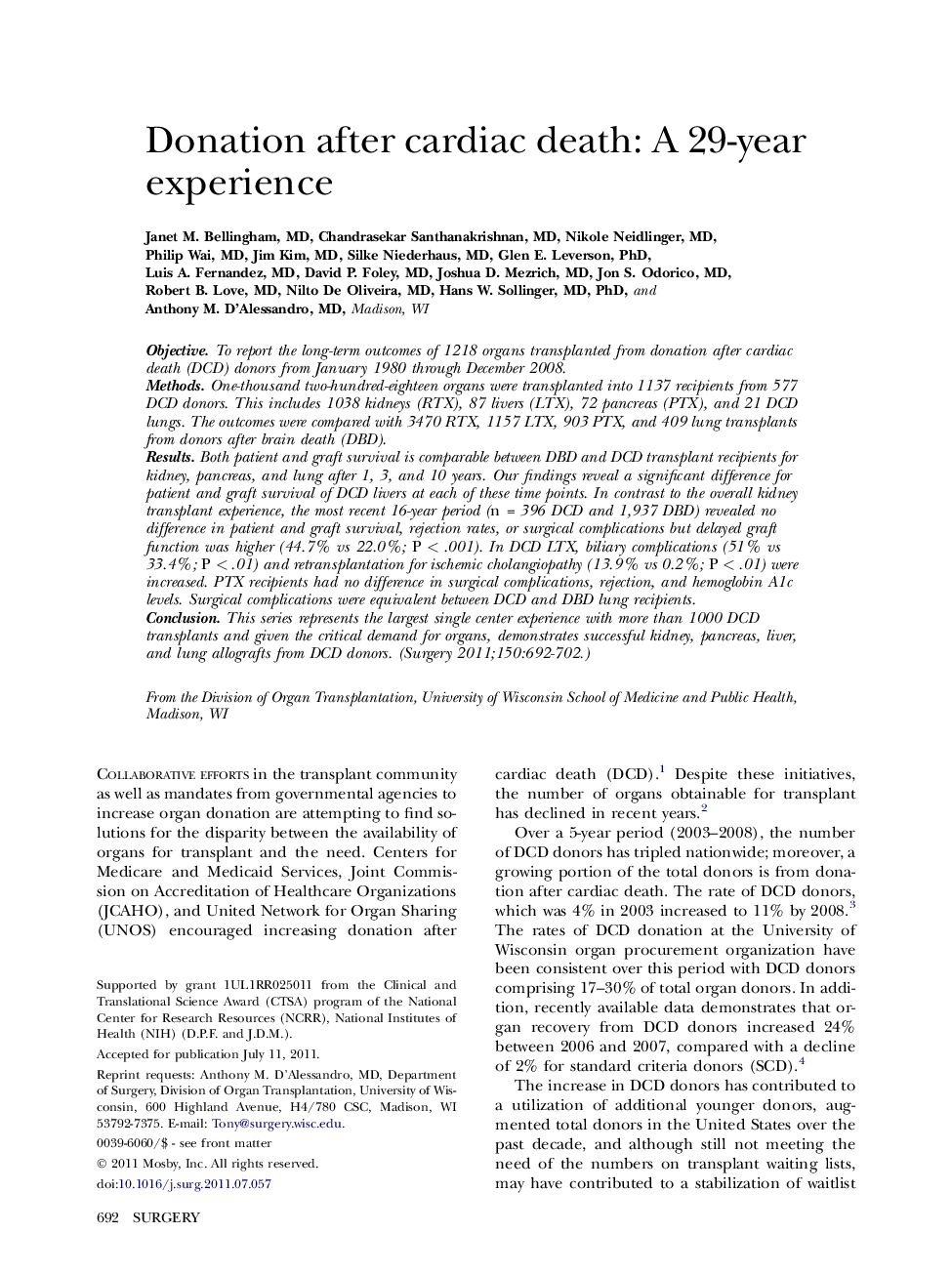| Article ID | Journal | Published Year | Pages | File Type |
|---|---|---|---|---|
| 4308571 | Surgery | 2011 | 11 Pages |
ObjectiveTo report the long-term outcomes of 1218 organs transplanted from donation after cardiac death (DCD) donors from January 1980 through December 2008.MethodsOne-thousand two-hundred-eighteen organs were transplanted into 1137 recipients from 577 DCD donors. This includes 1038 kidneys (RTX), 87 livers (LTX), 72 pancreas (PTX), and 21 DCD lungs. The outcomes were compared with 3470 RTX, 1157 LTX, 903 PTX, and 409 lung transplants from donors after brain death (DBD).ResultsBoth patient and graft survival is comparable between DBD and DCD transplant recipients for kidney, pancreas, and lung after 1, 3, and 10 years. Our findings reveal a significant difference for patient and graft survival of DCD livers at each of these time points. In contrast to the overall kidney transplant experience, the most recent 16-year period (n = 396 DCD and 1,937 DBD) revealed no difference in patient and graft survival, rejection rates, or surgical complications but delayed graft function was higher (44.7% vs 22.0%; P < .001). In DCD LTX, biliary complications (51% vs 33.4%; P < .01) and retransplantation for ischemic cholangiopathy (13.9% vs 0.2%; P < .01) were increased. PTX recipients had no difference in surgical complications, rejection, and hemoglobin A1c levels. Surgical complications were equivalent between DCD and DBD lung recipients.ConclusionThis series represents the largest single center experience with more than 1000 DCD transplants and given the critical demand for organs, demonstrates successful kidney, pancreas, liver, and lung allografts from DCD donors.
